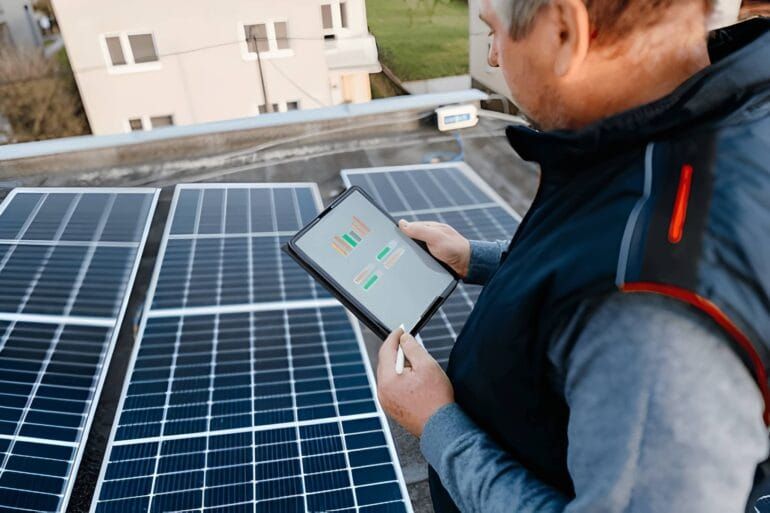As the world looks for ways to become more sustainable, many nations are turning to renewable energy to become a renewable energy superpower and meet their energy needs. This shift could lead to a more sustainable future, as renewable energy sources are more environmentally friendly than traditional fossil fuels. The use of renewable energy has been increasing in recent years, as technology has advanced and become more efficient. Solar, wind, and hydropower are all forms of renewable energy that are being used more and more around the world.
These energy sources are sustainable, meaning they can be replenished and are not finite like fossil fuels. The shift to renewable energy is a positive step towards a more sustainable future.
It is important that nations continue to invest in renewable energy sources, in order to meet the growing demand for energy while also protecting the environment.
The rise of renewable energy superpowers
As the world looks to move away from fossil fuels and towards renewable energy sources, a new type of superpower is emerging – the sustainable nation and the rise of the Renewable Energy Superpowers.
Nations that are rich in renewable resources are well-positioned to become the leaders in the global transition to clean energy.
These countries have the potential to become the world’s first renewable energy superpowers.
The rise of sustainable nations will have a profound impact on the global economy and geopolitics. renewable energy superpowers will be able to dictate terms to the rest of the world.
These countries will be the pioneers in developing the technology and infrastructure needed to support a low-carbon economy.
So far, it is the developed nations that have been the driving force behind the global transition to renewable energy.
The increasing use of renewable energy by nations
As the world looks to move away from fossil fuels and towards renewable energy sources, nations are increasingly turning to renewable energy to meet their energy needs.
This shift could lead to a more sustainable future, with less dependence on fossil fuels and a greater focus on renewable energy superpower sources. There are a number of reasons for this shift.
One is the increased focus on sustainability and the environment. As nations become more aware of the impact of climate change, they are looking for ways to reduce their carbon emissions.
Renewable energy is a key part of this, as it does not produce emissions when it is used.
The potential for a more sustainable future
A sustainable future is one that meets the needs of the present without compromising the ability of future generations to meet their own needs.
Achieving sustainability will require a shift away from our reliance on fossil fuels and toward renewable energy sources.
Nations are increasingly turning to renewable energy to meet their energy needs. This shift away from fossil fuels is crucial in the fight against climate change and will help to create a more sustainable future.
Renewable energy superpower such as solar and wind power are becoming increasingly cost-effective, making them a more attractive option for nations looking to reduce their reliance on fossil fuels.
The challenge of meeting energy needs
As the world progresses, nations are turning to renewable energy to meet their energy needs in a more sustainable way.
The shift to renewable energy is being seen as a way to reduce harmful emissions, create jobs, and increase energy security.
However, this transition comes with challenges. One challenge is the cost of renewable energy. While the cost of renewable energy has been falling, it is still typically more expensive than traditional energy sources.
This can be a barrier to adoption, especially for developing countries.
Another challenge is that renewable energy is often intermittent. This means that it can’t always be relied upon to meet energy demands.
This can be addressed through a mix of renewable energy sources and storage solutions, but it is a challenge nonetheless.
The role of renewable energy in the future
As the world looks to the future, the role of renewable energy will become increasingly important. Nations are turning to renewables to meet their energy needs, and this shift could lead to a more sustainable future.
Renewables are a crucial part of the mix when it comes to meeting the world’s energy needs. They are clean, efficient, and increasingly cost-effective.
And as technology continues to develop, renewables will become even more important. There are many reasons for this shift to renewables.
One is the need to address climate change. Burning fossil fuels releases greenhouse gases into the atmosphere, contributing to global warming.
Renewables, on the other hand, are much cleaner and have a much smaller environmental impact.
Moreover, as the world’s population grows, so does the demand for energy. But traditional energy sources are finite, and will eventually run out.
Renewables, however, is sustainable and will never run out. Additionally, as solar and wind technology advances, we are able to harvest more and more energy from these sources.
The benefits of renewable energy
As the world increasingly turns to renewable energy to meet its energy needs, many nations are beginning to reap the benefits of this shift.
These benefits include a more sustainable future, increased energy security, and lower emissions.
Renewable energy is a more sustainable option than traditional fossil fuels. It does not deplete the earth’s resources, and it emits far fewer greenhouse gases than fossil fuels.
As the world shifts towards a more sustainable future, the concept of a “Renewable Energy Superpower” is becoming increasingly relevant.
By relying on renewable energy sources, nations are not only reducing their carbon footprint and limiting their contribution to climate change, but they are also ensuring a more secure energy future.
Unlike finite fossil fuels, renewable energy sources are limitless and immune to price spikes, positioning nations that harness them as a powerful Renewable Energy Superpower
Renewable energy, on the other hand, is an abundant resource that is not subject to the same price fluctuations.
This increased security can lead to stability for nations that rely on renewable energy. Finally, renewable energy also has the potential to lower emissions.
Fossil fuels release harmful pollutants into the atmosphere, which can damage the environment and human health.
Renewable energy, on the other hand, produces very little pollution. This can lead to cleaner air and water, and improved public health.
The benefits of renewable energy are clear. Nations that make the shift to renewable energy can expect a more sustainable future, increased security, and lower emissions.
This shift is essential for the world to meet its energy needs in a clean and efficient way.
The need for a global shift to renewable energy
As the world population continues to grow, the demand for energy will only increase. However, the world’s finite supply of fossil fuels is slowly being depleted, and their burning emits harmful greenhouse gases that contribute to climate change.
The need for a global shift to renewable energy is therefore becoming more urgent. There are many reasons why renewable energy is a preferable option to fossil fuels.
For one, renewable energy sources are environmentally friendly and sustainable; they include solar, wind, water, and geothermal power.
Solar and wind power in particular are growing rapidly in popularity, as the technology to harness them becomes more advanced and less expensive.
What’s more, renewable energy is becoming increasingly cost-competitive with fossil fuels, making it a more viable option for both businesses and consumers. There are also important geopolitical reasons for the shift to renewable energy.
As the world becomes more reliant on Fossil fuels, nations that have large reserves of these resources have more power and influence.
This reliance also makes countries vulnerable to disruptions in supply, as we have seen in the past with oil shortages.
A shift to renewable energy would help to break this reliance and create a more stable and sustainable energy system. The need for a global shift to renewable energy is therefore clear.
A major transition is underway, and the world must move away from fossil fuels and towards cleaner, sustainable energy sources. The benefits are many, and the time to act is now.
The world is at a turning point. Nations are increasingly turning to renewable energy to meet their energy needs, and this shift could lead to a more sustainable future.
With the right policies in place, renewable energy can become the dominant source of energy, powering economies and transforming lives.
This would be a huge step forward in the fight against climate change, and it would create a more sustainable future for all.
Conclusion
Renewable energy sources such as solar, wind, and hydropower are becoming more common around the world as nations look to become more sustainable and reduce dependence on finite fossil fuels. The shift towards renewable energy has the potential to lead to a more sustainable future with reduced carbon emissions, increased energy security, and lower costs.
However, the transition also comes with challenges such as the cost of renewables and intermittency. The role of renewables in the future will become increasingly important as the demand for energy grows and the need to address climate change becomes pressing.
Developed nations are currently leading the shift to renewables, but the rise of sustainable nations with abundant renewable resources could lead to a new type of superpower, the renewable energy superpower.







